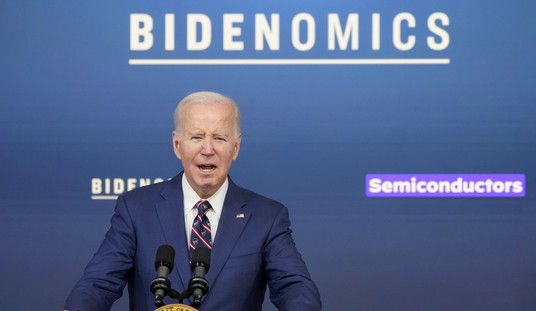In California, ten teachers are suing over forced union dues. With unions engaging in political activity, these teachers feel that adhering to so-called “agency shop laws” violates their constitutional rights to free speech. Even if teachers disagree with their union, or their political activities, they still have to fork over cash. The Center for Individual Rights (CIR), who has taken their case, said in a press release on April 30 that:
[A] suit was filed against the lead defendants, the California Teachers Association (CTA) and the National Education Association (NEA), as well as ten affiliated local teachers’ unions, and local school officials.
As a condition of public employment, the State of California and its public school districts, in cooperation with the CTA, requires every public school teacher, including non-union members, to pay several hundred dollars in fees each year for “chargeable” expenses that are related to the teacher unions’ collective-bargaining efforts. Even for “non-chargeable” union expenses related to lobbying and political activities outside of the collective-bargaining process, non-union teachers who do not wish to contribute must go through an annual “opt out” process that is often intimidating and time consuming. This so-called “agency shop” arrangement violates the First Amendment guarantee of free speech and free association by imposing compelled subsidies of political activity while serving no “compelling state interest” and failing to be “narrowly tailored” to any government interest, according to the complaint.
“Forcing educators to financially support causes that run contrary to their political and policy beliefs violates their First Amendment rights to free expression and association and cannot withstand First Amendment scrutiny,” said Michael A. Carvin, partner with Jones Day and lead counsel for the plaintiffs. “The Supreme Court questioned the continued constitutionality of ‘agency shop’ laws last year in the Knox decision.”
Last year, the Supreme Court ruled in Knox v. Employees Intl. Union, 132 S.Ct.2277,2285 (2012), that the Service Employees International Union (SEIU) in California violated the First Amendment rights of its non-union members by forcing them to pay a 25 percent increase in union dues without their consent to help fight ballot initiatives in the State.
Writing for the Supreme Court, Justice Samuel Alito warned:
“Because a public-sector union takes many positions during collective bargaining that have powerful political and civic consequences, the compulsory fees constitute a form of compelled speech and association that imposes a significant impingement on First Amendment rights.” Knox v. Serv. Emps.Int’l Union, Local 1000, 132 S. Ct. 2277, 2289 (2012).
“Individual teachers have a constitutional right to decide for themselves whether to join a union and financially support its efforts,” said Terry Pell, President of the Center for Individual Rights. “The government may not compel teachers to provide financial support to policies with which they fundamentally disagree.”
The money collected by forced dues in California are huge. In an editorial published in USA Today this month, CIR reported that “the California Teacher Association alone takes in more than $190 million per year.” That’s a rather large war chest to fight anti-union policies, like school vouchers, which some teachers may agree with, concerning enhancing education opportunities for students. That’s the constitutional argument in this case. Plaintiff Rebecca Friedrichs supports vouchers, but was still forced to pay dues to the teachers union that is vociferously against anything that would break up their cartel.
As conservatives, we shouldn’t try to emulate liberals by using the judicial system to change society. Our nation should, in the words of Justice Antonin Scalia, progress democratically. Thus, the legislature should be the focal point for advocacy groups to lobby for such legislation. Yet, as Neil McCabe wrote for Townhall on May 12:
in the last decade, the CTA gave 89 percent of its contributions to ballot initiatives, 10 percent to Democrats and less than 1 percent to Republicans, according to the site. The union backed 299 winners, 77 losers and a total of 625 incumbents.
California is a state with a huge political tradition of getting things done by ballot referendum, and the union was deeply involved in left-wing causes. In 2003, the union gave $250,000 to a fund called: Californians Against the Costly Recall of the Governor, during the recall election of Democrat J. Graham “Gray” Davis Jr., and 2008 the union donated $1.3 million to defeat Proposition 8, a referendum that amended the state constitution to outlaw same-sex marriage.
In 2012, the CTA spent $21 million to successfully defeat Proposition 32, which would have prohibited paycheck-deductions to unions to support political causes. If that seems like a lot of money, consider the teachers union was only in for a third of the $65 million raised from dozens of other unions in the state.
With the defeat at the polls, California opponents to compulsory support of union political activities need are turning to the courts.
Hence, California may be the exception, especially concerning labor relations. Due to the state’s overt liberalism, it’s virtually hopeless for conservatives to change anything in Sacramento. It also doesn’t help that the California GOP has been politically ineffective since 1994 due to the fallout from the Prop. 187 initiative. The state party has never recovered from that legislative disaster, and the Democrats have since ruled the roost.
For now, CTA spokesman:
Frank Wells said in an email that the suit is a “baseless challenge” intended to dilute worker rights.
[…]
Wells, the union spokesman, said no one is forced to join a union or spend money on political activity, and he disputed the account that it was difficult for teachers to “opt out” of the fees.
“The lawsuit seems self-contradictory. It acknowledges that those represented by unions can opt-out of paying … and then complains that they are somehow forced to pay for them,” Wells wrote.
It should be interesting how this case turns out. If the California courts agree that forced dues are a serious infringement on First Amendment rights, at least the Bill of Rights is respected. If not, we certainly live in two Americas, but there is a glimmer of hope.
In Texas, the attorney general ordered this month that teachers’ paychecks can’t be used to fund political action committees of unions. Also, Michigan’s law barring the collection forced dues was upheld on May 9 by the U.S. 6th Circuit Court of Appeals, who said that the provision “does not restrict the unions’ speech at all…the act merely directs one kind of public employer to use its resources for its core mission, rather than the collection of unions dues.”









Join the conversation as a VIP Member